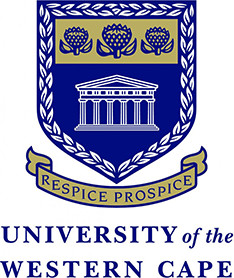Author: Jean
Published:
31
Jul
2015
Mobile training unit members were trained in the last week of July 2015 on the new registers, case folders and court diary, designed to ensure pre-trial detainees do not get "lost" and that time limits in the criminal justice system are met.
ACJR News
News
Malawi
Author: Jean
Published:
31
Jul
2015
On 27-30 July 2015 CSPRI assisted in the training of a mobile training unit which is to roll out new case folders, registers and court diaries across Malawi.
ACJR News
News
Author: Jean
Published:
31
Jul
2015
On 27-30 July 2015 CSPRI assisted in the training of a mobile training unit which is to roll out new case folders, registers and court diaries across Malawi.
ACJR News
News
Recent Events
Author: Jean
Published:
27
Jul
2015
This fact sheet was prompted by media reports in July 2015 of prisoners being held in effective solitary confinement at Kgosi Mampuru II Correctional Centre in Pretoria, South Africa, in an unlit underground cell.
ACJR News
News
Author: Jean
Published:
24
Jul
2015
The Khayelitsha Commission of Inquiry recommended that the South African Police Service (SAPS) review the allocation of police resources across South Africa, after finding that the comparative allocation to Khayelitsha compared to other policing areas was irrational and unjust. To date neither the relevant Minister nor the SAPS has responded to the Commission Report.
ACJR News
News
Author: Jean
Published:
24
Jul
2015
The Khayelitsha Commission of Inquiry recommended that the South African Police Service (SAPS) review the allocation of police resources across South Africa, after finding that the comparative allocation to Khayelitsha compared to other policing areas was irrational and unjust. To date neither the relevant Minister nor the SAPS has responded to the Commission Report.
ACJR News
News
Recent Events
Author: Jean
Published:
20
Jul
2015
In June and July 2015 CSPRI worked with the Legal Resources Foundation (LRF) - Kenya, and Resource Oriented Development Initiative (RODI) toward commencing their work for Kenya's National Council on the Administration of Justice.
ACJR News
News
Author: Jean
Published:
08
Jul
2015
At the 56th ACHPR Ordinary Session, which was held in Banjul, The Gambia, from 21 April to 7 May 2015, the ACHPR Committee for the Prevention of Torture in Africa (CPTA) decided that its first General Comment on Article 5 and the prevention and prohibition of torture would examine the right to redress for victims of torture and other ill-treatment.
ACJR News
News
 Malawi launches new criminal justice case flow system
Malawi launches new criminal justice case flow system







